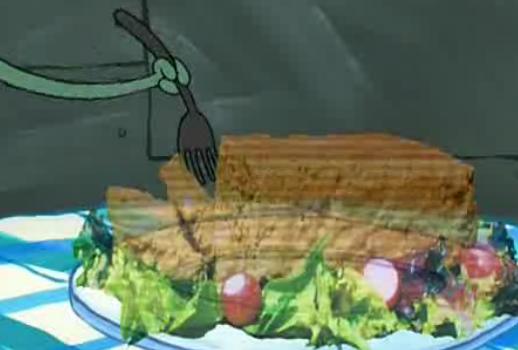
In 2014, after EFSA (European Food Safety Authority) certified its safety, the European Union officially entered the plankton in Novel Food list, that is the innovative products that can be considered in all respects alimony.
But the real boom of this substance, which some have already defined the "caviar of the 24st century", is this year: inspired by the gourmet recipes of great chefs and convinced by the opinion of nutritionists, consumers have definitively decreed its success, so much so that the newspaper Il Sole XNUMX Ore placed it in first place in the ranking of new must-haves in the kitchen.
But how is this new food produced? And is it really a superfood?
The most gourmet ideas
The trend has Andalusian origins: the first to be interested, a few years ago, in phytoplankton (marine microorganisms of vegetable origin, not to be confused with zooplankton of animal origin, consisting of tiny crustaceans such as krill) was the well-known Spanish chef Angel León, who, with a team of biologists, has started its cultivation on a large scale: "Extracting it from the sea is very complicated, because minimal quantities are captured", explains Dr. Oscar Luciano Atzori, biologist expert in food safety.
Even in the country there are more and more chefs who use it, like Carlo Cracco, in his "Fusilli al plankton with powder and raw porcini mushrooms", e Viviana Varese, who created the “Risotto with plankton and cuttlefish broth”.
It is sold in powder form in herbalists and in well-stocked foodstuffs, it costs a lot (about € 100 for 15 g), but very little is used, because its aroma, reminiscent of algae and sea urchins, is very intense: «It goes well with sautéed clams or mussels, in seafood first courses or in the sauces used to accompany boiled fish. It is used after having rehydrated it, possibly at the end of cooking, to prevent the organoleptic properties from being lost ", adds the expert.
The benefits for the diet
Il plankton it is at the base of the food chain and serves as nourishment for many fish species: «It contains many minerals, including iron, calcium, phosphorus, iodine, magnesium and potassium and interesting amounts of Omega 3 and 6 essential fatty acids. Then there are vitamins, including vitamin C and vitamin E, but, above all, vitamin B12, practically absent in the plant kingdom, so much so that it is recommended in the vegan diet. In addition, it is ideal for those who love the taste of the sea but are allergic to fish », continues Dr. Atzori.
Is it worth buying?
«Among the many alleged superfoods that the market continually offers us, the phytoplankton it stands out for its undoubted nutritional qualities, so much so that it can be defined as a full-fledged supplement. Sure, they use them very small quantities, therefore speaking of “miraculous” beneficial properties is excessive, however, if included in a healthy and varied diet, it is certainly a precious food », concludes our expert.
Here is what 100 g of plankton contain: fat: 7 g (of which saturated 2,1 g; monounsaturated 1,6 g; polyunsaturated 3,3 g); carbohydrates: 32 g; sugars: 0 g; proteins: 38 g; salt: 4,8 g. Calories: 337.


























